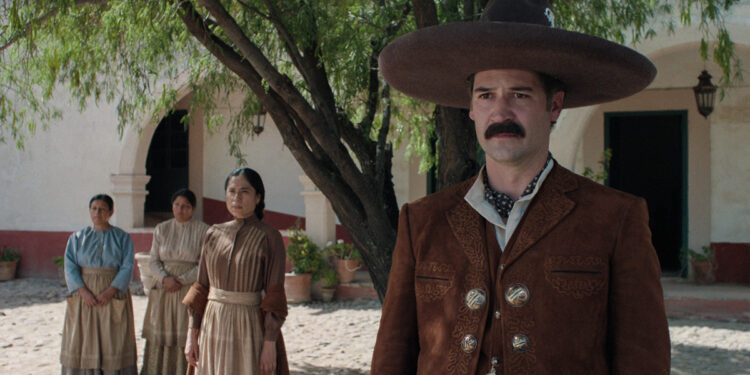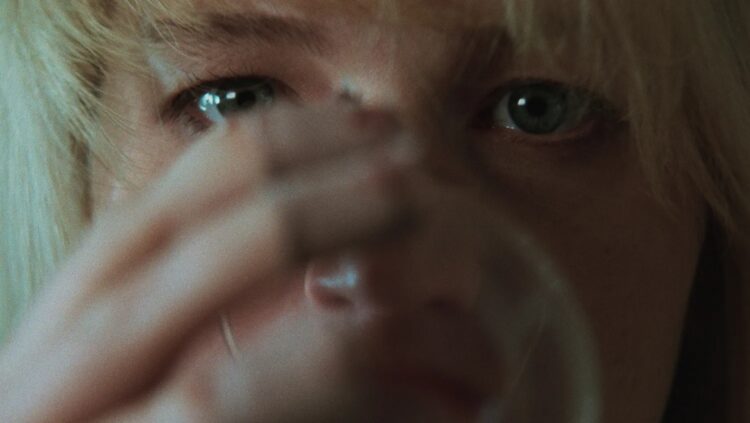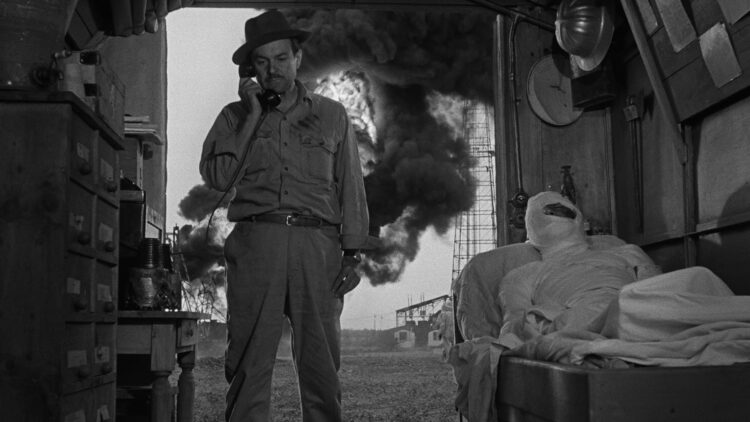

I haven’t read Pedro Páramo by Juan Rulfo, but a glance via Google informs me it was a very important novel: a magical-realist text that influenced Latin American writers like Gabriel García Márquez and Julio Cortázar. Now, I can’t get too presumptuous here, but further reading about the text, with words like “ghosts,” “memories,” and “labyrinthes” kind of gets the imagination going––those are terms greatly exploited by cinema and literature alike. Watching the 2024 adaptation of Pedro Páramo, one yearns further for the resurrection of the long-dead Raúl Ruiz to bring a string of madness to esteemed literary adaptation co-productions.
Instead the feature film, directed by esteemed cinematographer (and Scorsese’s current go-to) Rodrigo Prieto, has the stench of a Netflix production. You’d think the DP would be ready to flex his muscles on his directorial debut, but Pedro Páramo, even with occasional forays into glossy surrealism, can be summed up as prosaic: a project hyper-concerned with respectability and never risking too much in images or narrative.
But first there should be some set-up as to the actual content deriving from the classic book. Opening in what seems the 1940s, the timid Juan (Tenoch Huerta) comes to a Mexican ghost town looking for his father, the titular Pedro Páramo (Manuel Garcia-Rulfo, a descendant of the original author), a notorious scoundrel who essentially made himself the small town’s sheriff and mayor. Terrorizing its residents through physical, sexual, and financial violence, his authoritarian legacy also coincides with the onset of the Mexican Revolution. His crimes are something destined to follow Juan around forever, and the film wants to go about inhabiting the mental state that inflicts, weaving in and out of time plus perspective.
The first problem is synonymous with that of the prestige literary adaptation, chiefly capital-T Theme. Beyond the obvious of making Pedro a stand-in for a number of strongman world leaders today, Pedro Páramo also casts a heavy hand when dealing with issues like Catholicism, making the connections between it and right-wing cruelty too obvious. As this quasi-dictator, Rulfo, despite a stiff face and a heavy mustache, never quite delivers the right amount of commanding charisma for the role, making the film sink around him. It doesn’t help that Prieto tries telling the story in a non-linear, surrealist fashion, but too many of his set-ups are dull and slow-moving, often resembling a streaming miniseries. You don’t get lost in the abyss of memory and trauma; one’s always aware of pulled punches. If it means anything, though, this misfire at least made me interested in actually reading the book so I could speak about these issues with more authority. A win for the Rulfo estate in some shape or form, at least, that a weak film can still move a unit or two.
Pedro Páramo premiered at the 2024 Toronto International Film Festival and comes to Netflix on November 6.
The post TIFF Review: Pedro Páramo Marks a Lifeless Directorial Debut for Rodrigo Prieto first appeared on The Film Stage.



